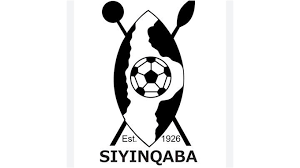By Costa Nkomo
Highlanders Football Club, established in 1926, was destined to meet a remarkable supporter 15 years later. In 1941, Tshinga Judge Dube, known by his war name Comrade Embassy, was born.
His deep-rooted love for Highlanders ran as profoundly as the Zambezi River, a quiet but steadfast devotion to the club that shaped his life.
While some may focus on Highlanders’ recent struggles, such attempts to diminish the club’s legacy overlook the unwavering loyalty of a revolutionary like Tshinga Dube. To disregard his contribution is to ignore a man who bled Bosso colours, a man whose dedication was woven into the very fabric of the club.
Highlanders, like Tshinga, were fearless. Just last weekend, Bosso fans, in protest against a controversial decision during a Chibuku Super Cup quarter-final at Wadzanai Stadium, boycotted Barbourfields Stadium as Highlanders hosted ZPC Kariba. Despite the absence of their loyal supporters, Bosso triumphed 2-0, proving their resilience.
The chaos at Wadzanai Stadium began with a questionable late penalty awarded to Simba Bhora by referee Cecil Ngwezere. Highlanders players protested, and the match was abandoned. This incident mirrored Tshinga’s own resilience—he was a man addicted to the thrill of supporting Highlanders, just as he had been to the betting game in his later years.
His unwavering dedication did not go unnoticed. Even President Emmerson Mnangagwa, referring to Highlanders as “the team of the whole nation,” recognised Tshinga’s deep love for the club. To erase Tshinga’s contributions to Highlanders would be as egregious as erasing the club’s founding by King Lobengula’s sons. It would be a betrayal of Highlanders’ revolutionary heritage.
Tshinga was a man of integrity, never afraid to speak truth to power. Whether calling out President Mnangagwa or former President Robert Mugabe, he stood for what was right. His memoir, Quiet Flows the Zambezi, chronicles his wartime bravery and unflinching honesty, a testament to his character.
In the 1960s, Tshinga’s bravery was on full display when he smuggled military arms into the country, risking his life. His audacious act landed him in a Rhodesian prison, yet his war legacy remains untainted. His commitment to Zimbabwe’s liberation was as unwavering as his love for Highlanders.
To understand Tshinga’s impact on Highlanders, one need only listen to the club’s CEO, Sihlangu Dlodlo. Describing him as a “beacon of calm in the storm,” Dlodlo recalled Tshinga’s unwavering support: “Baba Dube was a father to us. He brought calmness when there was chaos. He was always the voice of reason.”
Tshinga was more than a fan; he was a diplomat for Highlanders, often using his resources to support the club financially during tough times. Dlodlo noted that Tshinga would even pay foreign coaches out of his pocket, never seeking fame but driven by his love for the club. His quiet contributions elevated Highlanders to new heights.

